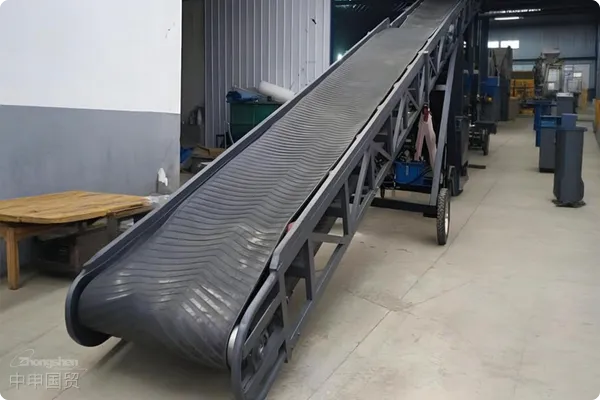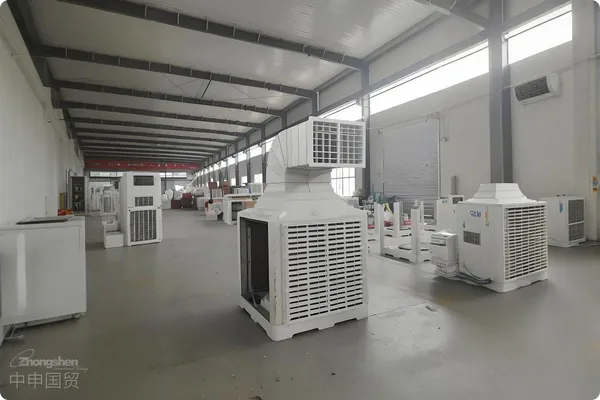- Shanghai Zhongshen International Trade Co., Ltd. - Two decades of trade agency expertise.
- Service Hotline: 139 1787 2118

Abstract: Mechanical parts exports involve complex processes and procedures. Choosing the rightExport Representationcan help companies reduce risks and improve efficiency. However, export agency fees are a key factor that companies must pay attention to. This article will delve into the composition of mechanical parts export agency fees, influencing factors, and how to make costs transparent, helping companies gain a greater advantage in the fierce international market competition. By understanding the fee standards of different agency models, companies can better plan their export budgets and choose the most suitable partners for their needs.
Composition of Mechanical Parts Export Agency Fees: In-Depth Analysis
Basic Service Fee: The Starting Point of Transparency
The basic service fee for export agents is one of their main sources of income, typically covering core services such as document preparation, customs declaration, and commodity inspection. This fee is relatively fixed, but different agency companies may have differences. Companies should carefully compare when making choices. For example, some agency companies may charge additional fees under various names such as operation fees or document processing fees, so it is necessary to clarify all fee details in advance. A transparent fee structure helps companies better control costs and reduce the risk of additional fees later. Additionally, some agents may calculate the basic service fee based on the value or weight of the exported goods, so it is essential to understand the specific billing method before signing a cooperation agreement.
Logistics Transportation Fee: A Key Factor Affecting Fee Fluctuations
Logistics transportation fees are a more volatile part of mechanical parts export agency fees, directly affected by factors such as transportation methods (Maritime Transportation,Air Transportation, land transport), transportation distance, fuel prices, and peak or off seasons. For larger or heavier mechanical parts, sea transport is usually a more economical choice, while for goods with high timeliness requirements, air transport is more advantageous. Additionally, different transportation insurance fees will also affect the overall logistics costs. Choosing the right logistics method not only relates to transportation fees but also directly affects whether the goods can be delivered safely and on time. Therefore, when selecting an export agent, companies should fully consider the agents resources and experience in logistics transportation to ensure the economic and reliability of the logistics plan. At the same time, they can compare logistics quotes from multiple agents to choose a more cost-effective solution.
Other Additional Fees: Hidden Costs That Cannot Be Ignored
In addition to basic service fees and logistics transportation fees, mechanical parts export agents may also involve other additional fees, such as storage fees, insurance fees, inspection fees, and destination port clearance fees. These fees are not necessarily incurred in every export, but once they occur, they will increase the companys export costs. For example, if goods need to be stored at the port for a period of time, storage fees will be incurred; if goods require special inspection and quarantine, inspection fees will be incurred. Additionally, some destination countries may charge additional tariffs or value-added taxes. When selecting an export agent, companies should not only focus on the agency fee rate but also fully understand the potential additional fees and confirm them with the agency company in advance to avoid unnecessary cost expenditures.
Analysis of Factors Affecting Export Agency Fees for Mechanical Parts: A Multi-Perspective Interpretation
Product Characteristics and Export Destination: The Root of Cost Differentiation
Different mechanical parts require varying levels of operational difficulty and resource investment for export agency services due to differences in material, size, weight, and value, leading to corresponding fee variations. For example, precision mechanical parts may require more specialized packaging and transportation methods, thereby increasing logistics costs. Additionally, the regulatory policies, tariff rates, and customs clearance requirements of the destination country also impact export agency fees. For instance, exports to EU countries may require CE certification, while exports to some developing countries may necessitate specific export licenses, all of which increase agency costs. Therefore, when selecting an export agency, companies should fully consider their product characteristics and export destination, choosing an agency with relevant experience and qualifications.
Agency Company Scale and Service Level: Key Factors Influencing Pricing
Export agency companies of different scales offer varying service levels and fee structures. Large agencies typically have more comprehensive global networks and richer experience, providing more complete services, but their fees may be relatively higher. Smaller agencies may offer more competitive pricing but with relatively limited service capabilities. When making a selection, companies should consider the agencys scale, service level, and reputation based on their needs and budget. They can review the agencys certifications, customer evaluations, and industry reputation to find a suitable partner. Additionally, comparing quotes and proposals from multiple agencies can help identify the optimal balance.
Cooperation Model and Payment Terms: Focus Points for Fee Negotiation
Different cooperation models and payment terms also affect export agency fees. For example, some agencies may offer bundled services with a fixed fee covering all service items, while others may charge per project based on actual services rendered. Payment terms such as advance payment or payment upon delivery may also influence costs. When selecting a cooperation model and payment terms, companies should fully consider their cash flow situation and risk tolerance, engaging in thorough communication and negotiation with the agency to secure more favorable terms. Clear payment clauses can effectively prevent disputes later on.L/CConclusion: Selecting the Right Export Agency to Optimize Export Efficiency
Export agency fees for mechanical parts are not fixed; they are influenced by multiple factors. When choosing an export agency, companies should not focus solely on price but also consider the agencys service capabilities, expertise, reputation, and experience. By making costs transparent, companies can better plan their export budgets and select the most suitable partner, thereby achieving greater success in international market competition. It is recommended that companies thoroughly understand relevant knowledge before exporting and compare multiple agencies to choose the best partner for maximizing export efficiency.
Summary: Exporting mechanical parts involves complex processes, and selecting the right export agency can help companies reduce risks and improve efficiency. However, export agency fees are a critical factor that companies must consider. This article delves into the composition of export agency fees for mechanical parts, influencing factors, and how to make costs transparent, helping companies gain a competitive edge in the intense international market. By understanding the fee structures of different agency models, companies can better plan their export budgets and select the most suitable partner.
Related Recommendations
Category case
Contact Us
Email: service@sh-zhongshen.com
Related Recommendations
Contact via WeChat

? 2025. All Rights Reserved. Shanghai ICP No. 2023007705-2  PSB Record: Shanghai No.31011502009912
PSB Record: Shanghai No.31011502009912









